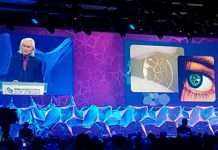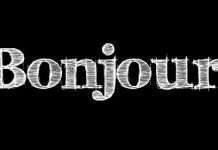Humanity is rapidly becoming ensnared in a technological web of its own creation, a system so pervasive that escape feels increasingly impossible. This isn’t simply about convenience or progress; it’s about a fundamental shift in our relationship with nature, with ourselves, and with the very definition of what it means to be human. The question isn’t whether technology is good or bad, but whether we are sleepwalking into a future where our autonomy is eroded, our connection to the natural world severed, and our very humanity diminished.
The Erosion of Autonomy
Paul Kingsnorth, author of “Against the Machine: On the Unmaking of Humanity,” argues that we’ve become cogs in a larger system, a “machine” that isn’t just phones and screens, but a centuries-old industrial, economic, and cultural force that has systematically divorced us from our roots. This isn’t a new phenomenon; writers have warned of this dehumanizing trend since the dawn of the Industrial Revolution. The modern iteration, however, is far more insidious, operating at a speed and scale that leaves little room for resistance.
Kingsnorth’s own life reflects this struggle. He and his family retreated to rural Ireland over a decade ago, seeking to escape the relentless grip of the machine, homeschooling their children, growing their own food, and disconnecting from the constant demands of digital life. This wasn’t an act of Luddism, but a deliberate attempt to reclaim agency, to live a life rooted in place and purpose rather than dictated by algorithms and consumerism.
The War Against Nature
The machine’s most devastating consequence is its relentless assault on the natural world. Climate change, mass extinction, and ecological collapse are not accidents; they are the inevitable outcomes of a system that views nature as a resource to be exploited rather than a sacred entity to be revered. The green movement, ironically, has become complicit in this destruction, embracing technological “fixes” like electric cars and renewable energy that merely sustain the machine’s growth rather than address its fundamental flaws.
Kingsnorth argues that true sustainability isn’t about replacing fossil fuels with solar panels; it’s about dismantling the industrial logic that drives ecological devastation. This requires a radical shift in values, a rejection of the relentless pursuit of growth and efficiency that has brought us to the brink of collapse.
The Spiritual Crisis
The machine’s most subtle yet profound effect is its erosion of the human spirit. The constant stimulation, the endless distractions, the relentless pressure to conform… these forces numb our capacity for wonder, for contemplation, for genuine connection. The rise of virtual reality, artificial intelligence, and transhumanist fantasies… these are not solutions to our problems, but symptoms of a deeper malaise: a loss of faith in something beyond ourselves.
Kingsnorth’s own spiritual journey—from Zen Buddhism to Wicca to Orthodox Christianity—reflects a search for meaning in a world increasingly devoid of it. He argues that the Christian faith, with its emphasis on humility, sacrifice, and the transcendent, offers a powerful antidote to the machine’s dehumanizing logic.
The Inevitable Collapse?
The question isn’t whether the machine will collapse, but how. Will it succumb to ecological limits, economic crises, or social unrest? Or will it simply evolve, becoming more efficient, more pervasive, more inescapable? Kingsnorth doesn’t offer easy answers, but he insists that we must confront the truth: we are living on borrowed time, and the only way to survive is to reclaim our humanity, to reconnect with nature, and to rediscover the sacred in a world that has long forgotten it.
The machine wants to kill us, not through malice, but through indifference. It doesn’t care about our souls, our forests, or our futures. It only cares about growth, efficiency, and control. The only way to resist is to refuse to participate, to live a life of purpose, and to remember that we are not cogs in a machine, but creatures of wonder, capable of love, beauty, and transcendence.



























































